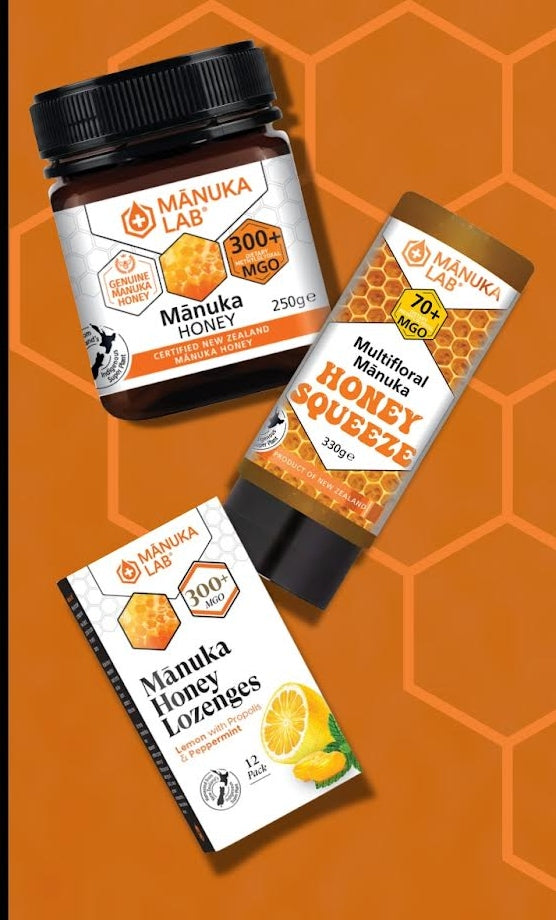

Thanks to its antimicrobial activity, Mānuka honey has grown a great reputation, making it a sought-after product for culinary, beauty and even medicinal uses. It is produced from the Mānuka flower, scientifically known as Leptospermum scoparium. This flower is native to New Zealand, and blooms for just 2-6 weeks every year. Together with its benefits and great taste, this rarity is another reason why antimicrobial Mānuka honey is so revered – making possessing some a truly special gift from nature.
But what is the history behind it? Where does Mānuka honey originate, and how did people first realise its potential? And what do producers do to ensure that only genuine Mānuka honey is sold? Let’s take a look…
The History of Antimicrobial Mānuka Honey
Early use of the Manuka Tree
The Mānuka tree has a long history of use in its native country of New Zealand. The indigenous Māori valued it for its wide variety of uses, referring to the plant as “taonga,” which translates to “treasure.” As stated in Mānuka, A Honey of a Plant, the plant was used medicinally; infusions were made from the leaves to reduce fevers and to treat stomach and urinary problems. Gum that was produced from the tree was used as a moisturiser for burns, as well as to ease coughs. The bark was boiled to be used as mouthwash, sedatives and to treat diarrhoea and fever.
Early European settlers were introduced to the plant by the Māori and would go on to use the leaves to make tea and brew beer. They learned how to extract oil from the leaves and used it for medicinal and cosmetic purposes, while wood was used to create tools and furniture.

Creating antimicrobial Manuka honey
While the settlers noted the native uses of the Mānuka tree, it was their introduction of beekeeping that created Mānuka honey – as it’s only the European honeybee that can produce it. Mary Bumby, an English beekeeper who settled on New Zealand’s North Island in the 1830s, is thought to be the first European to transport these types of bees to the country. She went on to set up her hives on the East Coast, where there was an abundance of Mānuka plants – the bees going on to pollinate them and Mary, creating the honey.
If you have ever wondered “where does Mānuka honey originate,” historical accounts point to New Zealand’s North Island in the 1830s as one of the earliest places Mānuka honey was produced. Despite being produced for a century-and-a-half, it was only in the 1980s that the unique antibacterial benefits of the plant were confirmed by scientists (its healing properties were already well known by the Māori, of course). This news saw a sharp rise in demand for antimicrobial Mānuka honey, leading to many producers being established – some more honourable than others.
Ensuring the Mānuka you buy is genuine
There was concern in the industry that any old honey could be passed off as Mānuka, meaning that the market would be diluted with poor-quality products. As a result, the New Zealand Ministry of Primary Industries intervened and stated Mānuka Honey must meet particular standards to be exported as Mānuka honey:
- Labelled as Multifloral Mānuka Honey or Monofloral Mānuka Honey – Multifloral must be clearly labelled on the jar. If Monofloral, then the honey may be called Mānuka honey.
- Mānuka may not have a health claim, but it can have a nutrition claim which must be clear and easily identifiable. This is the strength of the Mānuka honey, labelled as the MGO grade.
- Produced and packed in New Zealand – all of Mānuka Lab’s Mānuka honey is produced and packed in New Zealand. This ensures we have tested the Mānuka honey prior to packing and that it adheres to New Zealand’s strict guidelines for genuine Mānuka honey.
The MGO rating system was established – this is a measure of methylglyoxal (which is the unique, natural chemical found only in Mānuka, and is related to its potency); the higher the MGO, the higher the grade of honey.
So, if you’re shopping for genuine Mānuka honey, always be sure to look out for the MGO ratings and confirm its origin in New Zealand.

Mānuka: A New Zealand institution
The influence of Mānuka is omnipresent in New Zealand; the local economy in Auckland sees it sold in several ways, including as part of drinks in coffee shops and cocktail bars. Considering the product’s impact on the local area, a British equivalent would be Cornwall and its pasty industry – an instantly identifiable symbol of the area. Like Cornwall, there are copycats afoot, however – Australia, which has a comparable climate, have established their own industry and have been battling over the use of the term ‘Mānuka’.
Because Mānuka honey originates in New Zealand, the product has become an instantly identifiable symbol of the region. Like Cornwall, there are copycats afoot, however – Australia, which has a comparable climate, have established their own industry and have been battling over the use of the term ‘Mānuka’. In 2017, both the UK Trademark Registry and the New Zealand Intellectual Property Office decided that the term ‘Mānuka’ is a Māori word and therefore, only products made in New Zealand can be sold bearing the name. This is just like Champagne, which can only be made in a certain region of France, and of course, Cornish Pasties which must be prepared in Cornwall.
So that was the history of antimicrobial Mānuka honey up to the present day – if you’re interested in experiencing the benefits for yourself, why not browse our wide and varied selection of MGO Mānuka?

Choose The Gift of Nature, From The Manuka Lab
Here at the Mānuka Lab, we are leading committed providers of Mānuka honey in the UK. Our genuine New Zealand Mānuka honey is sustainably harvested from the indigenous Mānuka ‘Super Plant’ grown in the remotest areas of the East Cape region, ensuring quality, potency and verified origin.
Please take the time to browse our product selection – each clickable product page contains specific information about the items; their uses, ingredients and more. If you have any questions about the items you see, or on any aspect of antimicrobial Mānuka honey, we would be pleased to hear from you. Send us an e-mail at wecare@manukalab.co.uk
By choosing Mānuka honey, you connect with the long history and special origins of this product.



